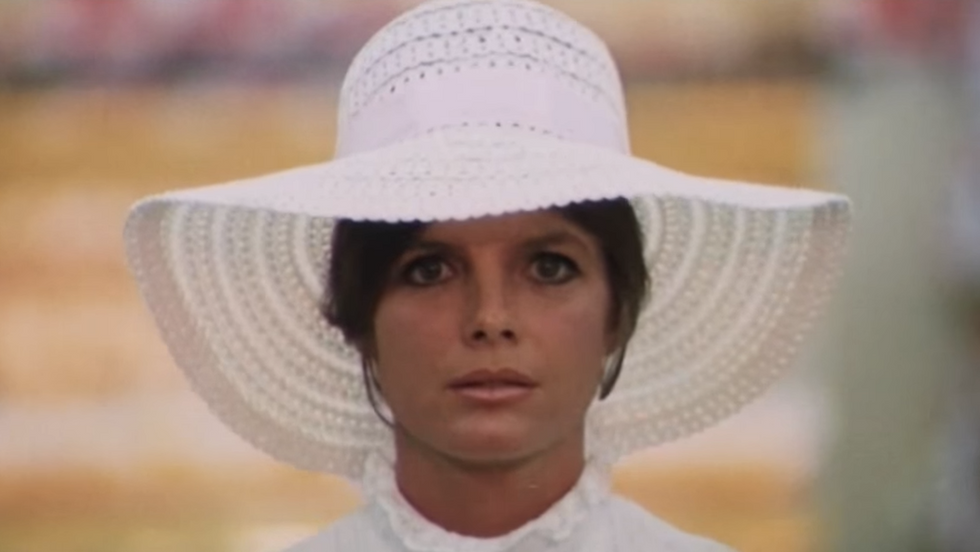Like most of us this past year, I watched Jordan Peele's eerie but introspective thriller "Get Out" and was... well, let's just say the movie was pretty effective. With on-point acting, special effects, and a solid social media presence that kept the ending from being completely spoiled online, I was enraptured at how well Peele's film was able to maintain a level of suspense that was viscerally realistic — well, as realistic as a horror film can be.
There has been a lot of praise towards Peele, not only for his incredibly talented (Oscar-winning) screenwriting, but for his ability to portray a political commentary through the film without completely compromising its level of creepy. If anything, it only enhances it.
However, Jordan Peele didn't invent the political horror film.
"The Purge" didn't even invent the political horror film.
Politics in art is nothing new, of course, and while this article isn't necessarily dedicated to the expression of politics throughout art, it is important to recognize that, more often than not, horror movies, in particular, are considered excellent platforms for presenting a satirical extreme of social, economic, or political issues.
What I love so much about Jordan Peele's creation of "Get Out" is it's almost parallel illustration of the 1975 classic "The Stepford Wives." The movies are not identical in any sense, but the concepts are remarkably similar, especially for being released nearly 40 years apart.
The plot of "Stepford Wives" follows as such: Independent photographer Joanna moves to a safe suburban neighborhood in Stepford, Connecticut with her small family, and quickly realizes that there is something very, very wrong with the hauntingly "perfect" Stepford housewives — they barely speak, are only concerned with cooking and cleaning, and all of their husbands are part of the Stepford's "Men's Association." The closer Joanna comes to figuring out the truth about Stepford, the more she begins to realize that she is in a lot more danger than she thought.
It might sound a little cheesy, sure, but a lot of the archetypes are also very much present in Peele's recent film: the seemingly safe neighborhood, neighbors that share an ominous secret, and the classic thrill of built up suspense that, by the end of the film, feels like it's actually closing in on you. You can't trust anyone.
Like "Get Out," the "Stepford Wives" film received a wide range of political backfire for its hot take on women's expectations within the home. The actual production and casting of the movie itself was relatively difficult, and the director asked nearly four lead actresses before any of them agreed to be a part of the project.
What I love most about "Stepford Wives" however, is that like "Get Out," it is able to take a common reality (moving to a new neighborhood, for example, or meeting the girlfriend's parents) and slowly raise the stakes until the ultimate finale of the movie.
Both movies start out relatively pleasant, and it isn't until the climax of both movies that anything turns especially violent.
The effect that this sort of storytelling creates contributes entirely to the feeling of thrill for the movie. We're all waiting, knowing something ominous is going to happen, but we don't know when. It's like watching "The Shining" and waiting for Jack to lose his mind.
We're watching a frog in a pot of water slowly being boiled alive.
"Get Out" and "Stepford Wives"' and their choices of a much more passive thrill of events (until the end of the movie) contrast dramatically to something as actively violent as "The Purge."
While all these movies have a sort of underlying political agenda, the outright extremity of "The Purge" almost seems to lessen the effect of the underlying theme. Its overuse of violence and gore make the movie much more fictional than "Get Out" of "Stepford Wives."
The actual similarities between movie and reality, as seen in "Get Out" and "Stepford Wives" are, in my opinion, what make them so creepy. They're too close to real life to be comfortable, but just far enough out of reality to be considered satirical.
The result from this off balance is an illustration of a realistic situation that falls apart through an extreme version of something that could more or less happen in real life — whether it be manipulating a culture as a sort of prop or decoration, or succumbing to the expectations of the status quo around you. The plot may be much more extreme than the reality, but the purpose of satire is to be just that
The purpose of satire is to create an extreme so absurd that it emphasizes the commentary of the film itself.








































